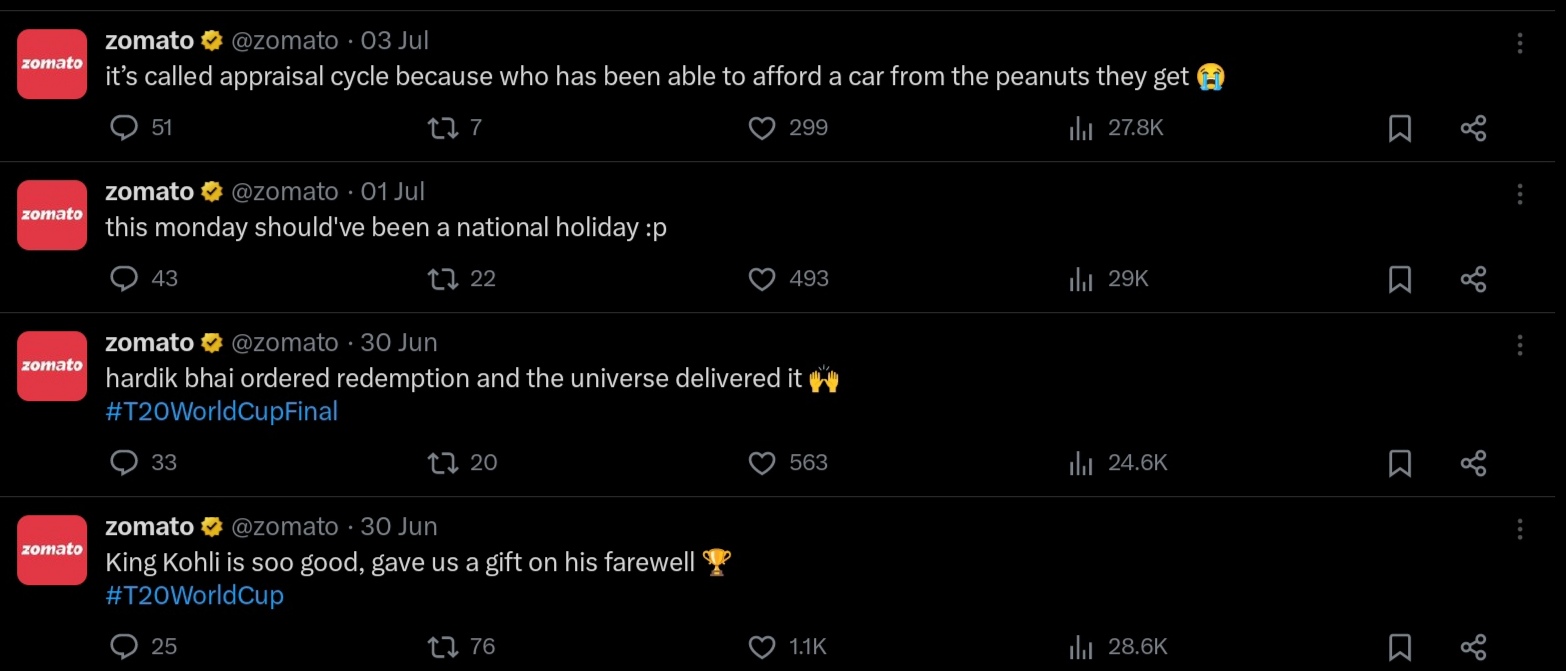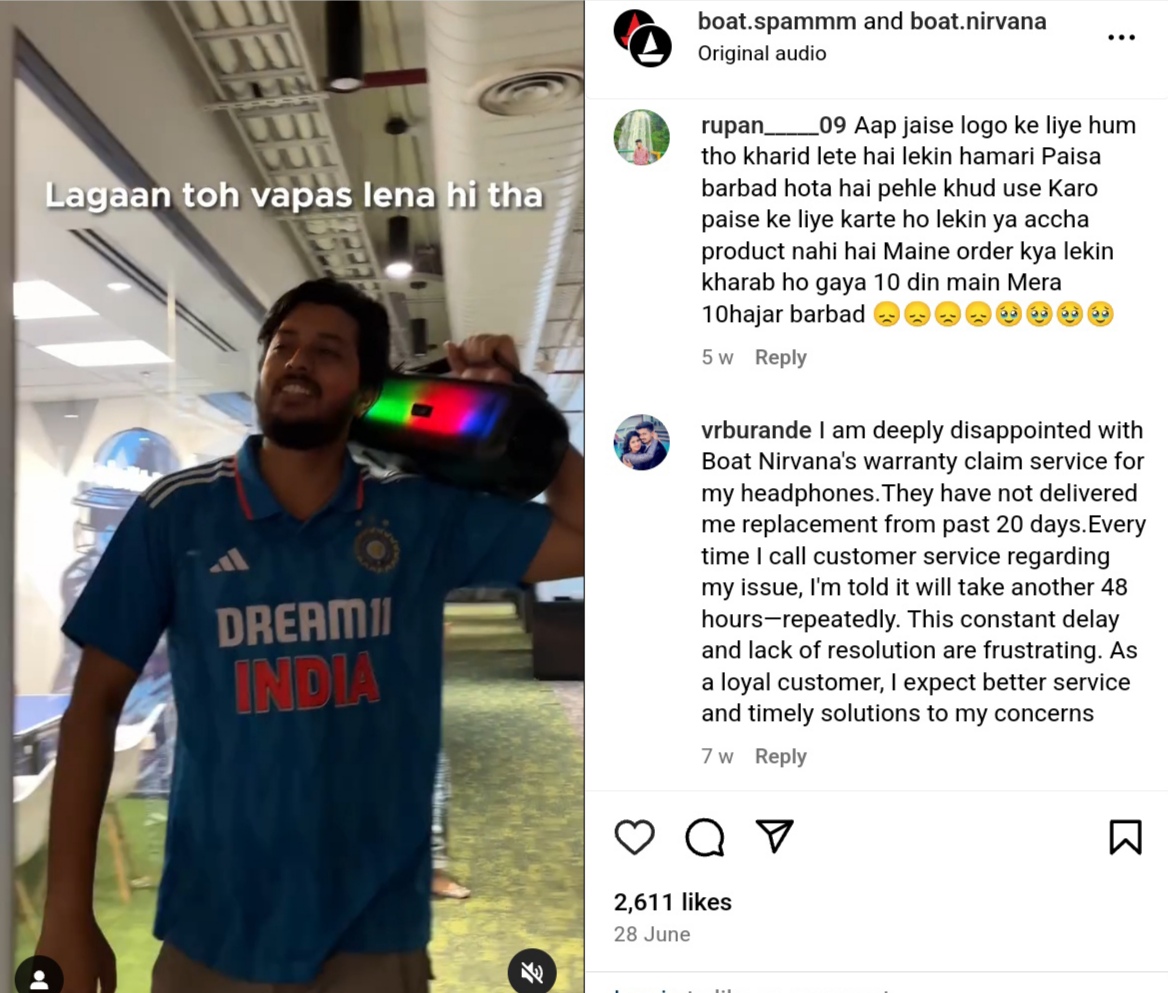Shameless Marketing
Why is every brand out there trying to irritate me into buying their crap? Who thought it was a great idea to message me 17 times a day about a deal I don’t care about? And above all, why is every brand making Instagram reels about some random bullshit trend? It leaves me on the verge of asking, “Do they even care about their brand image at all?” Or are they just like, let’s do SEO to get to the top of search results, run some Facebook ads, make some random reels to go “VIRAL,” print a ton of money, and vanish from the market like we never existed before.




I have read countless books on marketing, studied countless ads and marketing campaigns to get a good understanding of what marketing is really about, but we only use a great copy, ad, or successful campaign as an example to learn more about the topic itself. In some of the books, it was suggested to look for new ways to do marketing by studying the industry itself (as they were written 40-50 years ago).
While watching the current marketing campaigns and advertisements in the industry (mostly startups, because they are the ones who can experiment, as they lack the funds to get their name out in the market), I felt terrible. It was like they are forcefully trying to get attention, time, and money. It got to the point that skipping ads was normal even for me, and I’m a marketing student—my job is to watch and understand them.
As a student, watching the industry from the outside, it feels like this is the correct way of marketing because this is what everyone is doing, and it even works, right? So are we calling it an industry standard? NO FUCKING WAY! But why can it become the industry standard, though?
Among all the books I’ve read so far about marketing, none of them suggest irritating your consumers to get sales. So why did it become popular among startups in the first place? The truth is, it’s the easy way out—more specifically, the lazy way out. And due to its easy implementation, it is being copied on a large scale. Who will want to invest a ton of money in understanding consumer behavior, finding out about their target consumers, getting to the core of consumerism to understand their pain points, when you can achieve 80% of the desired result (at least financially) with just a few Instagram reels and 10 employees working to get higher rankings on search engines, continuously lying for the sake of fragile growth? A brand will.

Well, it is such a shame that new startups are catching up with the wrong trend. It pollutes the industry and brings shame to the rest of us. This is not marketing. It didn’t work with Mr. Whipple in the 1970s, and it won’t work now. The current state of marketing is a sad reflection of how far we've strayed from the true essence of what marketing should be.
Essence of true marketing
Seth Godin, in his book “This Is Marketing,” explained it all very well. He said, “Marketing is the generous act of helping others become who they seek to become. It involves creating honest stories—stories that resonate and spread.
Marketers offer solutions, opportunities for humans to solve their problems and move forward. And when our ideas spread, we change the culture. We build something that people would miss if it were gone, something that gives them meaning, connection, and possibility.”
Marketing doesn't have to be selfish; it doesn't have to portray a brand as spammy, irritating, or money-oriented just to get people to click. I know you can do better than that—we all can.
More Sales ≠ Better Brand Image
More sales do not equate to a better brand image; it is merely a display of a great product. A brand image is created by constant iteration and maintaining consistency over design, tone, customer touchpoints, and much more. To build a strong brand, we need to dive deeper into human psychology and, more importantly, behaviorism. You need to know what makes your target consumer buy your rival's products instead of yours. How does it make them feel while choosing your product? Answering endless questions like these will create a brand image that will sustain in the long run.
Outro
It's time to put an end to these short-term, profit-driven tactics and focus on building brands that actually make a positive impact. Brands that shapes the society in a better way. More importantly we need better role models as brands, who are more market focused rather than marketing focused.
That’s it for now. Thank you for reading.